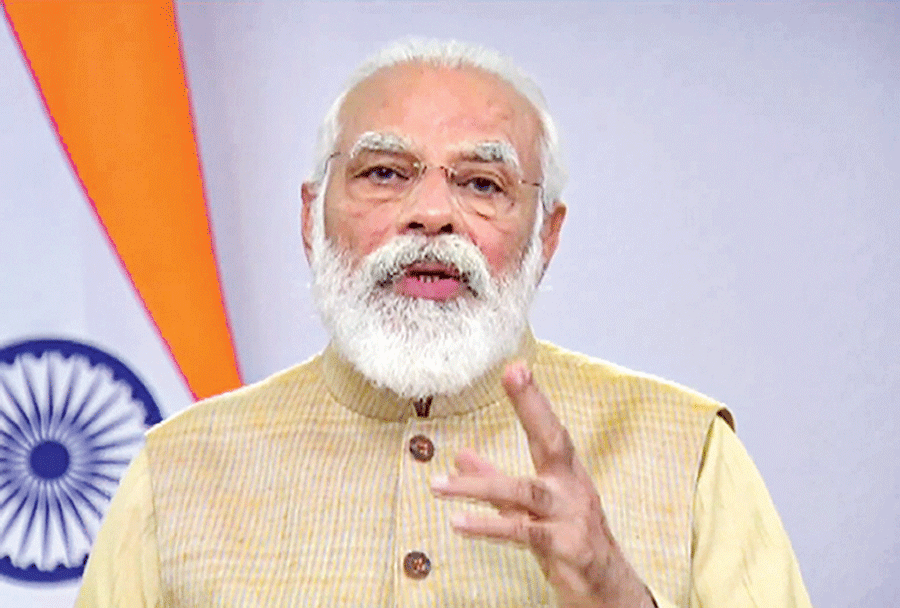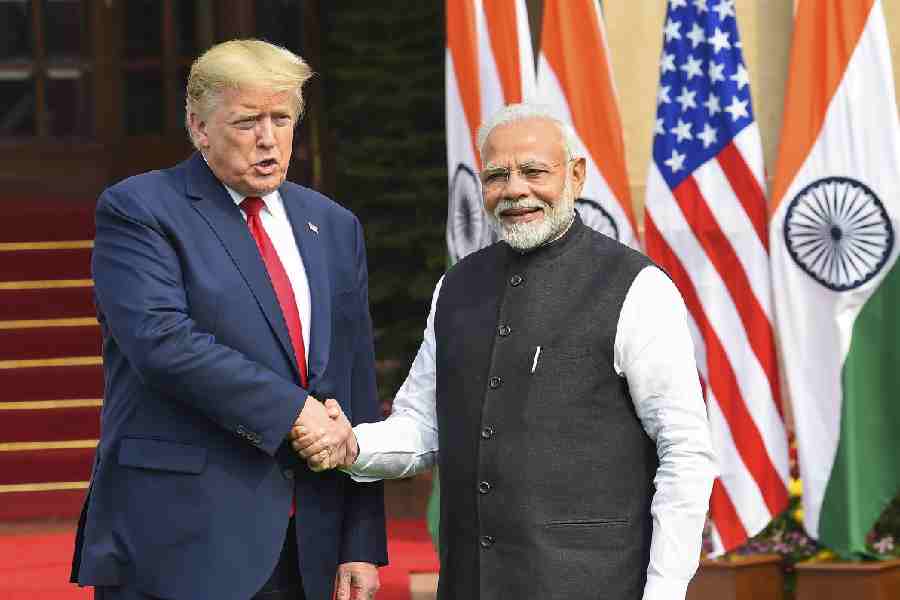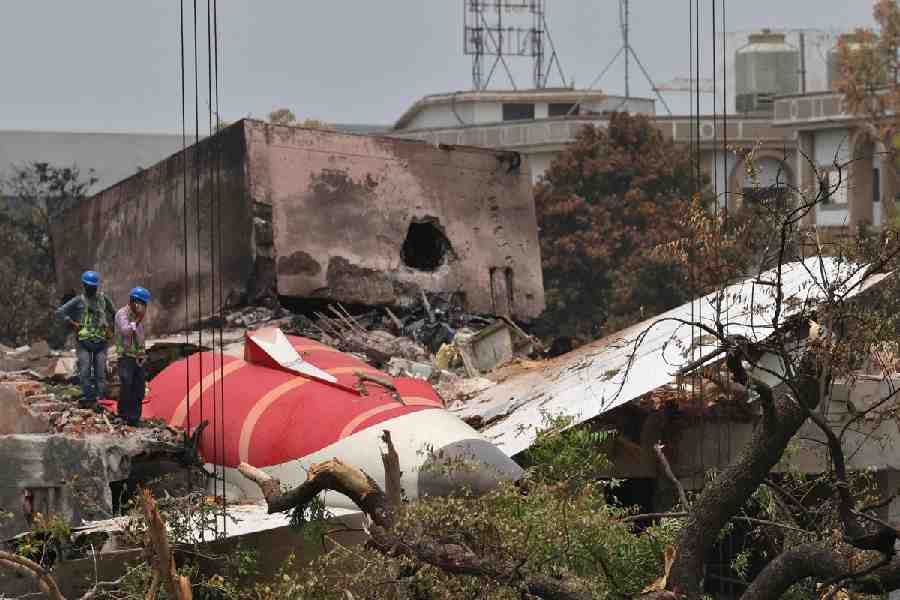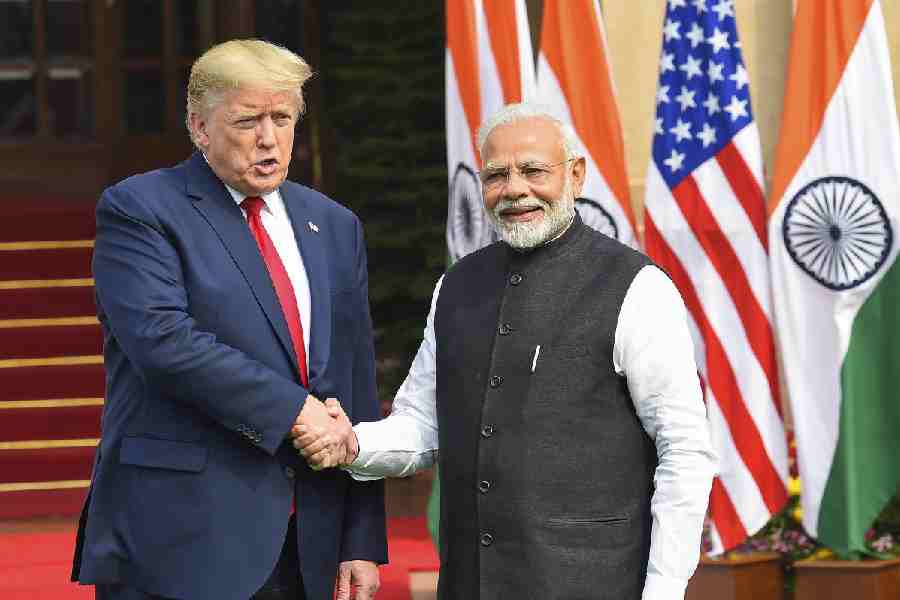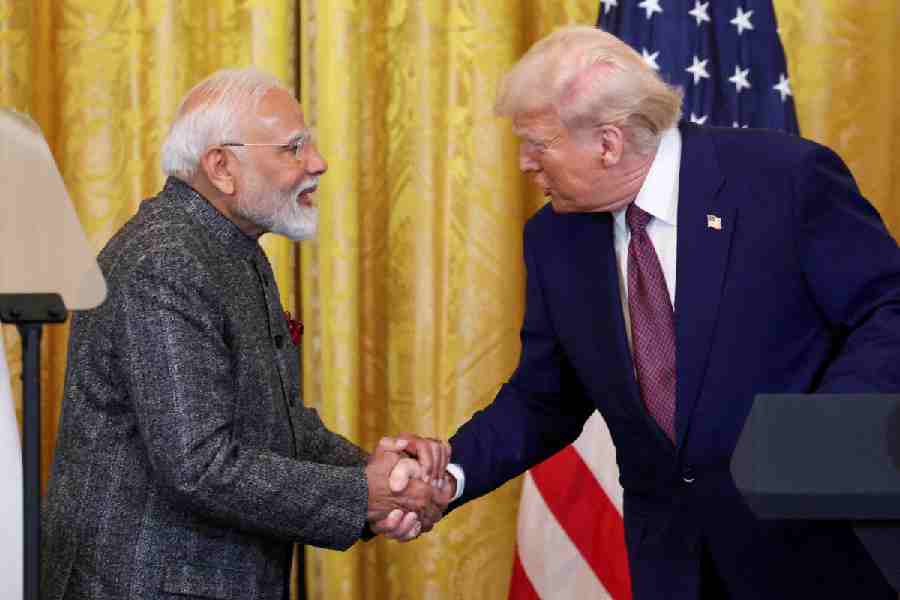The no-intrusion declaration by Prime Minister Narendra Modi on June 19 appears to have remained as the elephant in the room where India and China met for talks on Friday.
“The cause and truth of the current tension on the border are very clear, with the responsibility lying entirely with India,” the Chinese state-run Xinhua agency quoted defence minister General Wei Fenghe as telling his Indian counterpart Rajnath Singh on Friday in Moscow during the first face-to-face bilateral contact at the political level since the bloodshed in the Galwan Valley on June 15.
Less than 24 hours after the talks, India and China blamed each other for the border standoff and escalating tensions, appearing to indicate their defence ministers had failed to achieve a breakthrough. Either side confirmed that the other had expressed a desire to resolve the issues peacefully.
Without mentioning the Indian Prime Minister, China is still echoing what Modi told an all-party meeting on June 19, four days after the border clash in which 20 Indian soldiers and an unspecified number of Chinese troops were killed.
At the all-party meeting, the Prime Minister had asserted that no one had entered Indian territory or captured any Indian post. The government later claimed he was referring to the post-June 15 situation, which would suggest that Indian soldiers had thrown out any possible intruders.
Since then, satellite imagery and unofficial accounts of ground-level assessments have suggested the Chinese had ensconced themselves and built structures inside India-claimed lines at multiple locations in Ladakh.
The foreign ministry as well as the Indian Army have publicly acknowledged that the situation is grave along the Ladakh frontier. Foreign minister S. Jaishankar has said this is the most serious border situation with China since 1962.
It is against this backdrop that Rajnath and Wei had met for over two hours on Friday on the sidelines of the Shanghai Cooperation Organisation defence ministers’ meeting.
Shortly afterwards, Xinhua put out the statement that laid the entire blame at India’s door.
“China cannot lose one inch of its territory,” Xinhua quoted Wei as telling Rajnath. “The Chinese military is fully determined, capable, and confident of safeguarding national sovereignty and territorial integrity.”
Wei was quoted as saying: “The two sides should earnestly implement the important consensus reached by President Xi Jinping and Prime Minister Modi and stay committed to resolving the issue through dialogue and consultation.”
The statement by Xinhua, quoted in Chinese media, appears to have been primarily aimed at the domestic audience there although the authoritarian regime does not usually bother too much about public opinion.
Later, a statement issued by China’s state-controlled broadcaster CGTN and put up on the Chinese defence ministry website asked India “not (to) make provocations or deliberately hype and spread negative information”.
India’s defence ministry said China’s actions, including its “amassing of large number of troops... aggressive behaviour and attempts to unilaterally alter the status quo”, violated bilateral agreements.
It stressed New Delhi’s determination to protect its sovereignty and territorial integrity and asked Beijing to respect the Line of Actual Control.
A veteran said Wei’s comments, as reported by the Chinese media, implied that China was not in a hurry to pull back from the friction points — the Pangong Lake, Hot Springs and the Depsang Plains — where it had altered the status quo since May.
“India has been demanding full restoration of status quo ante. The Chinese comments suggest they are sticking to their line and that the talks have failed to resolve the impasse,” the veteran said.
The broadcaster CGTN’s statement on the Chinese defence ministry site said: “Wei said both India and China should abide by the consensus reached by their leaders and solve problems via dialogue and consultation.”
The statement added: “India should strengthen management and control of its frontline troops and not make provocations or deliberately hype and spread negative information. Wei also reaffirmed to Singh China’s commitment and ability to safeguard national sovereignty and territorial integrity in the meeting.”
It added: “Singh stressed the importance of a peaceful border relation with China, saying both sides should keep the channels of military and diplomatic dialogue open. He told his Chinese counterpart that India agrees to work toward full disengagement of frontline forces as soon as possible and push the relations between the two countries and armies back on track.”
An Indian statement said Singh had met Wei at the Chinese general’s request and had “frank and in-depth discussions” about the border standoff as well as bilateral relations.
Singh had “categorically conveyed” India’s position on the developments at the border friction points, including the Galwan Valley.
Rajnath had “emphasised that the actions of the Chinese troops, including amassing of large number of troops, their aggressive behaviour and attempts to unilaterally alter the status quo were in violation of the bilateral agreements and not in keeping with the understandings reached between the Special Representatives of two sides”, the statement said.
The Indian minister had “stated clearly that while the Indian troops had always taken a very responsible approach towards border management, but at the same time there should also be no doubt about our determination to protect India’s sovereignty and territorial integrity”.
“The Chinese defence minister conveyed that (the) Chinese side too desired to resolve the issues peacefully,” the Indian statement said.
It said Rajnath had advised Wei that it was important that the Chinese work with the Indian side for complete disengagement at the earliest from all friction areas, including the Pangong Lake, as well as de-escalation in border areas.

